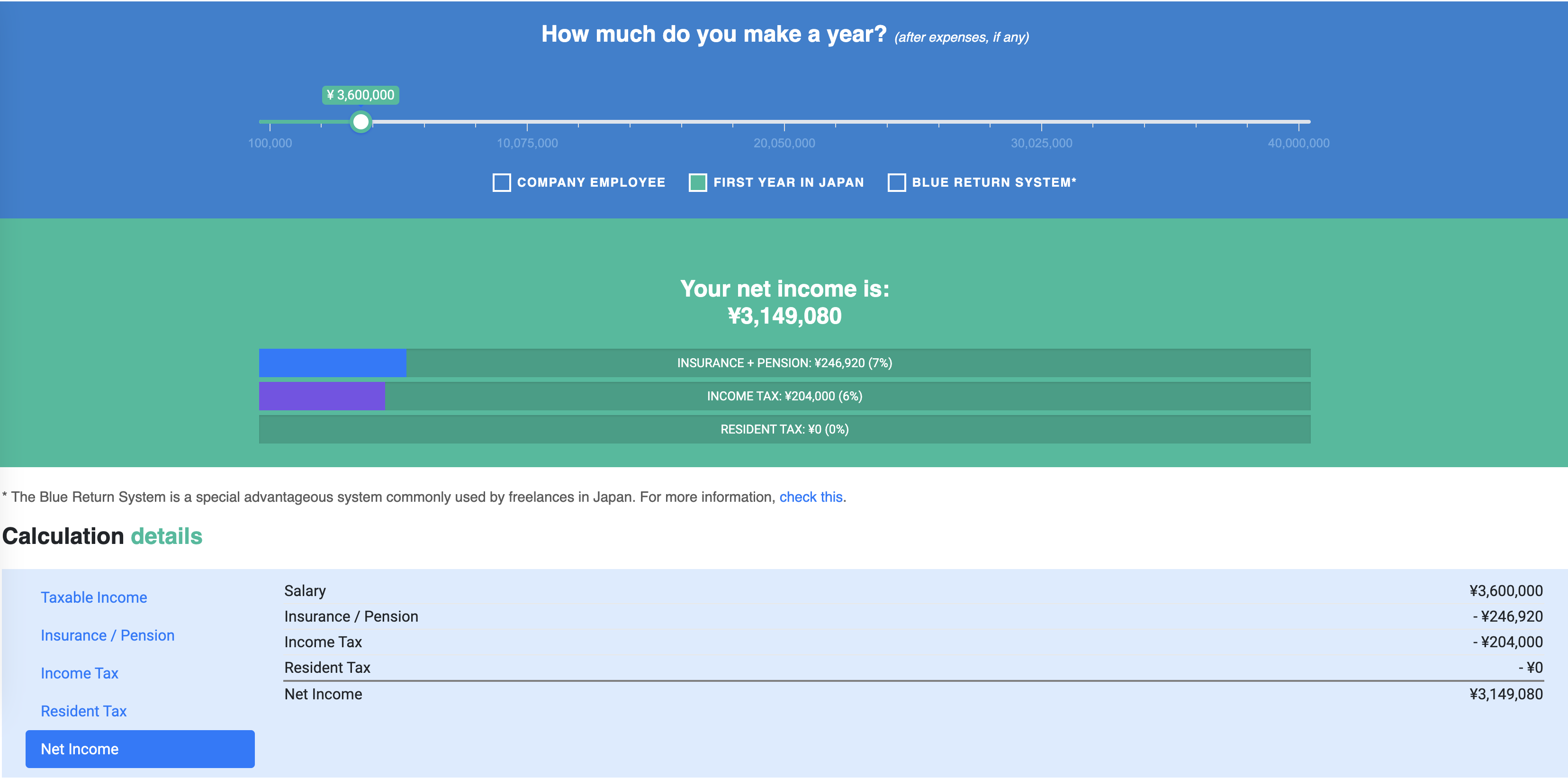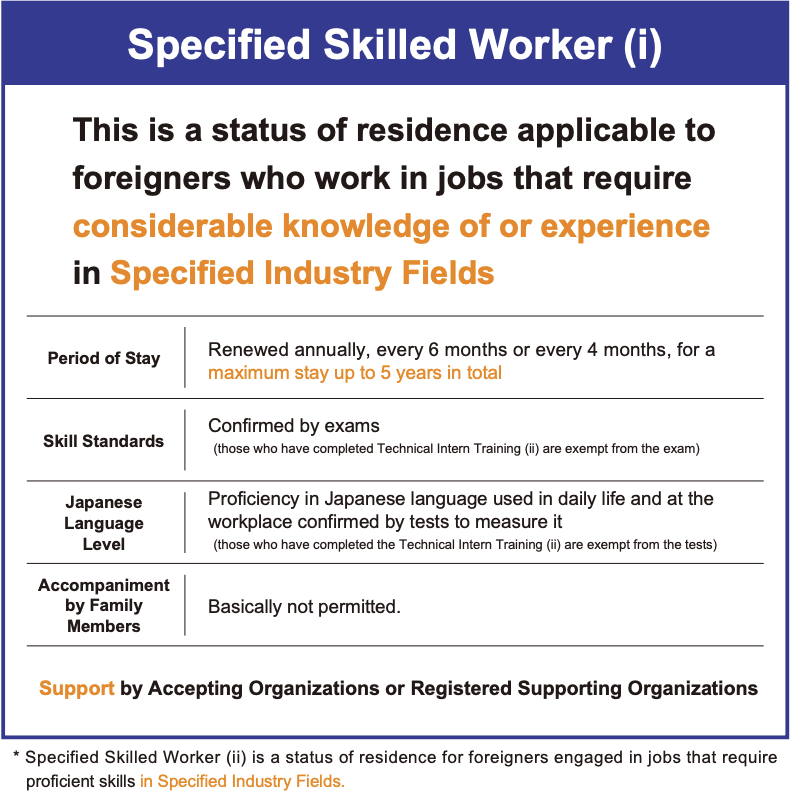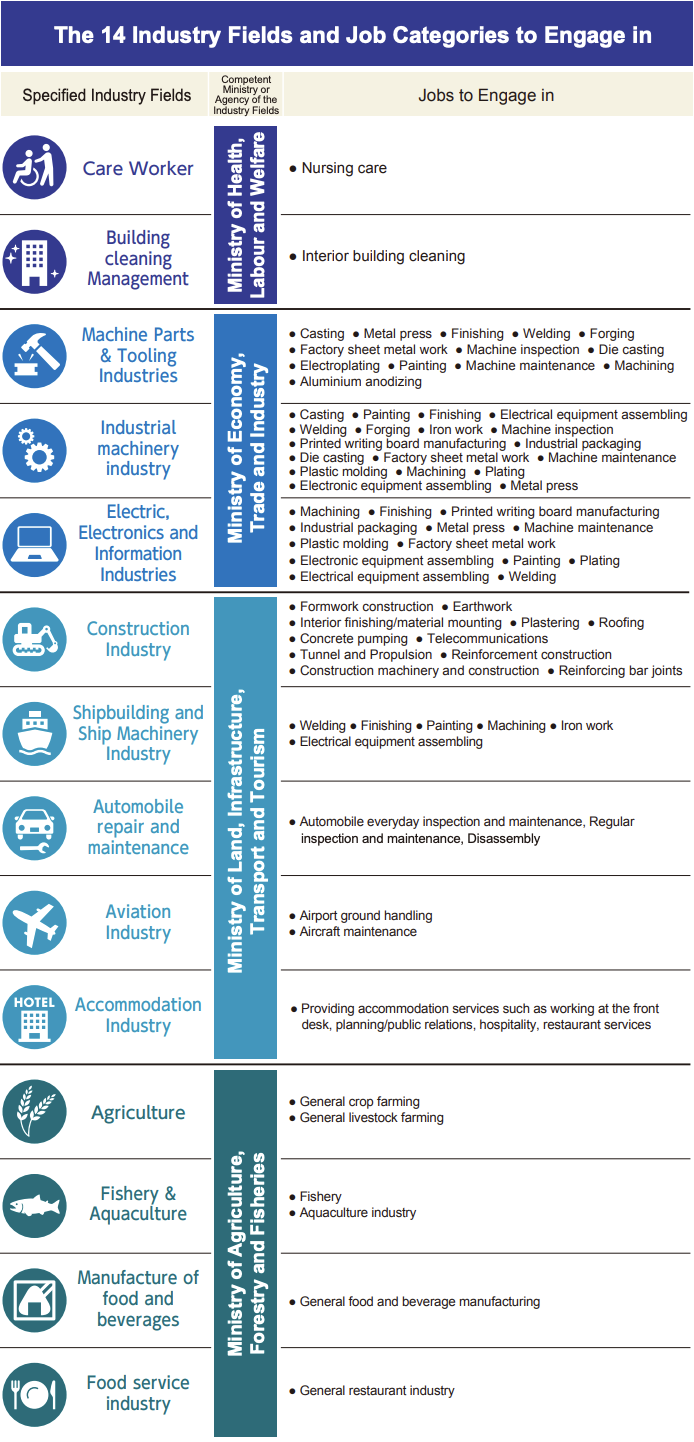Guidelines for Indians coming to Japan
1. Introduction
1.1. Nihon Kairali and its Role
Nihon Kairali is a non-profit organization based in Japan that has been acting as a platform for Keralites in Japan for the last 37 years. Nihon Kairali is not involved in any kind of recruitment and profit-making business. The role of Nihon Kairali here is to act as an information provider for the benefit of job seekers.
1.2. Purpose
The purpose of this guideline is to give proper information relating to recruitment, visas, and jobs so that job seekers in India can minimize the risks of falling into fraud offers and can enlighten themselves with the right information.
1.3. Background
There are reports of misrepresentation of work opportunities by both Japanese companies and overseas businesses with branches in Japan. Some travelers to Japan have reported both physical and sexual assault, lack of pay, and contract violations in addition to intimidation tactics related to their employment situation.
This guideline is created for job seekers who are planning to come to Japan from overseas.
1.4. Disclaimer
Nihon Kairali's primary aim with this document is to support job seekers in making informed decisions. It's important to note that we do not assume any responsibilities regarding recruitment, visa processes, or any subsequent procedures related to relocating to Japan.
2. Insights of living and working in Japan
2.1. Japan
Japan is an island country with 47 prefectures and Japanese is the language being used for the majority of work and living. The main industries include the automobile industry, machine tools industry, steel and nonferrous metals, ships, chemical substances, textiles, Information Technology, food processing industry, etc. Recently Japan has opened for some blue-collar jobs, which require manual labor, often in non-office settings like construction sites, production lines, agriculture, etc.
2.2. Japan for living
About 40000 Indians are living in Japan with major clusters in Edogawa Ku, Koto-Ku, Kawasaki Shi, Tokaichiba, Yokohama, etc in the Tokyo area and there are similar clusters in Nagoya, Osaka, Kobe, Gunma, Saitama, Fukuoka, etc. Most of the Tokyo clusters have Indian/international schools, Indian groceries, and local communities. If it is blue-collar jobs the locations might be in remote places where international facilities are and you may have to adapt to the local Japanese style of living.
2.3. Cost of living
The below table gives a brief idea of the expenses in Japan. Please note this expense is prepared just for an understanding and it’s based on an assumption that the person is living in a shared accommodation. It is important to understand this cost structure shared below is just for reference and the actual cost of living varies depending on one's living style.
| No | Item | Monthly cost (JPY) |
| 1 | Apartment for your stay | 40,000 |
| 2 | Electricity, gas, and water | 5,000 |
| 3 | Mobile phone charges | 3,000 |
| 4 | Transportation from house to workplace | 10,000 |
| 5 | Food expenses – assume you cook at home | 50,000 |
| 6 | Other expenses | 10,000 |
| Total | 1,18,000 |
In case you need a detailed understanding of cost, please refer below articles
2.4. Salary in Japan
Salary depends on the type of work and industry you are into. Blue-collar jobs have comparatively lower salaries but it isn't easy to generalize. Please refer to the link https://resources.realestate.co.jp/living/average-salary-japan-occupation-age/ for a rough idea of salaries
In Japan, the minimum wage depends on the industry and the region. Industrial minimum wages apply for certain industries and are usually set higher than the regional minimum. If regional and industrial minimum wages differ, a higher of two will apply.
As of March 2023, the minimum wage in Japan is estimated as ¥960 per hour.
The cost of commuting, extra pay (such as working on holidays, at night, overtime, etc.), and temporary pay (bonus, tips, etc.) must be paid exclusively and cannot be used to calculate the minimum wage. Regional minimum hourly wages are set by the Minister of Labour or the Chief of the Prefectural Labour Standards Office.
2.5. Health Insurance, Pensions and Taxes
Both health insurance and pension are mandatory in Japan. Health insurance can be either National Health Insurance or company-specific health insurance. There will be deductions from your salary like Income tax, Health Insurance/pension, and resident tax.
Below is a sample calculation based on 300,000 JPY salary per month (3,600,000 JPY per year
salary). Resident Tax is not included in the calculation but it will also come to around 6
percent depending on the place you live from the second year.

You can use this site for tax calculation simulation https://japantaxcalculator.com/ use the data only for reference to understand
3. Visa Options in Japan
3.1. Types of Visa for Foreigners
The following are working visa types and most of the job opportunities from India come under Engineer, intra-company transfer, skilled labor, and specified skilled workers. Recently very few nursing care visas are also been issued:
Those who come to Japan through student visas, visas for designated activities, or dependent visas are either prohibited from working or are restricted to part-time employment with limited hours.
There are many cases of fraud reported where job seekers were brought in on student visas (especially in the name of Japanese language study), assuring part-time jobs and permanent jobs.
3.1.1. Refugee Visas
As per the Japanese emigration laws refugee means a person who is outside the country of his/her nationality owing to a well-founded fear of being persecuted for reasons of race, religion, nationality, membership of a particular social group or political opinion and is unable or, owing to such fear, is unwilling to avail him/herself of the protection of that country.
Please understand that in general Indians are not acceptable to apply as refugees as there are no existing circumstances like Ukraine. It should be noted that in most of the visa fraud cases, after reaching Japan in tourist visas they will be asked to apply for refugees and keep on extending the application which is quite a temporary solution.
Please check the page https://www.moj.go.jp/isa/content/930002277.pdf for more information
3.2. Get the correct Visa
It is essential to arrange your visa in advance and secure a signed employment contract. This proactive approach increases the likelihood of receiving assistance from Japanese officials in case you encounter any issues with your employer.
It is illegal to work in Japan without a work visa.
Important - Visitors coming to Japan on a 3-month tourist visa, visitor visa, are not allowed to work in Japan. There could be fraudulent agencies who may say you can go to Japan on a tourist visa or visitor visa and later you can change the visa to a work visa. This is false information and please do not agree on such terms.
People hoping to find employment in Japan must have a working visa before they arrive in the country. Applying for one will require the cooperation of the company, university, research institute, board of education, or school that will employ them.
Please refer to https://www.mofa.go.jp/j_info/visit/visa/long/index.html for the list of working visas available in Japan.
3.3. New Visa Type of Specified Skilled Worker
A New visa type called “Specified Skilled Worker” has been introduced for people who are planning to work for jobs in the following categories. Please note that for the time being only less than 2000 people came to Japan in this category and intake from India is still in the preliminary stage. For this visa type specific field Tests need to be taken from the respective countries.

In 2019, Japan introduced a new Status of Residence known as the 'specially skilled worker,' designed to alleviate the significant labor shortage in the country by accepting experienced foreign human resources with specific expertise and skills.
This new visa has created a lot of job opportunities in countries like India, China, the Philippines etc. In the nursing and agriculture sectors, tests are being carried out in India. Before engaging with any agencies, it is advisable to conduct thorough due diligence to safeguard yourself from fraudulent activities. For all the SSW sectors, the candidate must either pass the N4 (or above) level of the Japanese Language Proficiency Test (JLPT) or the A2 (or above) level of the Japan Foundation test for Basic Japanese (JFT-Basic).

Detailed information here:
3.4. Technical Intern Training Program
The program promotes international collaboration through the transfer of skills, technology, and knowledge between India and Japan, thereby contributing to human resource development. It offers training to the workers for a specific period (3 – 5 years) in Japan’s industrial society.
The objective is to ensure that the most competent youth is selected and sent to Japan to participate in TITP.
The Ministry of Skill Development & Entrepreneurship (MSDE), Government of India and the
Ministry of Justice, Ministry of Foreign Affairs, and Ministry of Health, Labour and Welfare of
Japan signed a Memorandum of Cooperation initiating the Technical Intern Training Program (TITP)
in India in October 2017. The following is a list of companies qualified for sending people from
India to Japan.
https://nsdcindia.org/about-titp#sending-org
4. Verification
This section explains which and all verifications are to be done by a candidate who wishes to come and how it can be done.
4.1. Work Contract Verification
When an agent in your country offers you a job, you should ask for an employment contract with a company in Japan. You should receive the contract and it should be signed by both the employee and the company in Japan before coming to Japan.
Read the terms and conditions and make sure you understand them properly. Some work contracts may have fine print that you'll want to read to avoid potentially negative situations. Some contracts include early-termination clauses saying the employee is denied access to a return plane ticket or pay.
Legitimate contracts will include standard requirements under Japanese labor law.
Never travel to Japan without a signed employment contract.
4.2. Research about the company (employer) in Japan
Heavily research your employer in Japan.
Most of the registered companies can be searched here http://www.info-clipper.com/en/company/search/japan.jp.html (limited information available for free).
Also, check the company website and the telephone number displayed or even email them to cross-check about the opening.
If they ask you to make a payment or share details of your bank or any non-work-related info of any sort, it is something fishy. Please check twice before sending details.
Try to contact someone living in Japan through Facebook and ask about the company you are applying for.
4.3. Research the recruitment agency in your country
Research the agency in your country and make sure they are a legitimate and registered organization that can recruit staff for overseas jobs.
Find the List of registered Recruiting Agents for India from the Ministry of External Affairs (India) or Organization for Technical Intern Training website (Japan). Download and refer to the latest report as it gets updated regularly.
The Emigration Act, 1983 (Section 10) requires that those who wish to recruit Indian citizens for employment abroad shall register themselves with the registering authority i.e., the Protector General of Emigrants (PGE).
4.4. Try to find as much as information possible before coming to Japan
As mentioned above research the company, and recruiter, about the job, working conditions, and
working hours from your country itself to avoid issues later.
https://www.otit.go.jp/files/user/200330-2.pdf
4.5. Questions to ask the recruitment agency in your country
As mentioned above research the company, and recruiter, about the job, working conditions, and working hours from your country itself to avoid issues later.
5. Case Studies
This section explains some case studies
Case 1: Successfully relocated - the case of Mr.X
He paid some money for a job in Japan which included some training for some period for Japanese language study. He cleared the Japanese language Test N4 from India and his authorized agent placed him in a company in Japan. At first, he was placed as a contract employee and later he joined as a full-time employee of that company.
Case 2: Trapped and lost the money - the case of Mr.Y
He paid a huge sum of money to one agent for getting a job in Japan. They sent him to Tokyo with 7 day tourist Visa stating that he could convert his Visa to a Japanese working visa after reaching Japan.
After reaching here, he failed to clear Japan's immigration process and they deported him back to India. He lost his money and tried to get it back.
On that night his family panicked because they couldn't contact him as Japanese immigration didn't allow him to use his mobile. It is understood that many came in this way and they declared as refugees and most of them don't have jobs here and some of them are requesting their families to send money to Japan to survive here. Already reached people are not willing to go back to India as they already have huge liabilities there.
Case 3: Agents cheated but survived in Japan- the case of Mr.Z
He paid a huge sum for a job in Japan after borrowing from many friends and taking a loan from a bank. After reaching here he suffered a lot and things were not happening as promised by the agent in India. He was asked to pay more saying it was for accommodation, job entry charges, etc. which he again asked from India. He was asked to apply for refugee status in Japan which is very difficult to get. He somehow escaped from this agent and some Japanese helped him to apply for limited period work permission. He is working for a blue-collar job though his education is good. He cannot go back to India as then he will not be able to come here for work again. He is somehow getting short-period work permits and making earnings to repay the debts. He will go back once his financial liability is over and still expects he can work in a good company with decent pay and visa support.
6. Frequently Asked Questions
This section covers Frequently asked questions and their answers.
Q. Is an applicant for “Specified Skilled Worker” required to have an educational background in his or her country? Does the applicant need to have graduated from primary or junior high school?
A: There are no particular requirements regarding applicants’ educational backgrounds. However, there is a minimum age requirement for specified skilled workers – they must be over 18 years of age.
Q: Is there a need to pay a guarantee deposit to a broker or other party to go to Japan with a status of residence “Specified Skilled Worker”?
A: Specified skilled workers and their family members are prohibited from paying a guarantee deposit to work under the status of residence “Specified Skilled Worker”. Meanwhile, brokers and other parties are also prohibited from stipulating monetary penalties in contracts with specified skilled workers and their family members. Please never agree to a contract that stipulates the payment of guarantee deposits or monetary penalties.
Q. Can I work in Japan if I have a tourist visa or a visit visa?
A: It is illegal to work without a valid work visa. So, a tourist visa and a visit visa will not allow you to work in Japan
Q. Do I get an employment contract before coming to Japan?
A: Yes, it is highly recommended to have an employment contract with the company in Japan with all the terms and conditions. We recommend you never travel to Japan without a signed employment contract.
Contracts in Japan are drawn up according to the Japanese Labor Standards Law. They confirm all the details specific to employment: salary, overtime, holidays – also any notice requirements. Since Japanese workers rely heavily on public transportation (especially in major cities like Tokyo), contracts often include an allowance for public transportation costs.
Q. What level of Japanese is needed to work in Japan under the Specified skilled worker visa
A. From April 1, 2019, there are more employment opportunities for foreigners who have N4 or higher Japanese language ability. Under the “Specified Skilled” visa, with a Japanese language ability of N4 level or higher, the applicant will be able to take on various jobs in 14 industries.
The N4 level is a level where one can understand basic Japanese language. It is okay if a person can read and understand sentences written in basic words and kanji. With this level, you can largely understand the contents if you speak in basic words in day-to-day life. A new Japanese language proficiency test will also be conducted at this level. If you study for 300 hours at a Japanese language school, you will be able to reach this level. If you came to Japan as a foreign student and you are currently studying in Japan, it is a level that almost everyone can reach; hence it has opened up a great path to employment after graduation.
Q. Can I bring my family to Japan under my visa status
A. Most working visa statuses allow dependents and if you have a highly skilled visa type you can bring your parents too till your smallest kid is 7 Years old.
7. References and Contact Information
7.1. Contacting Authorities
7.2. Contacting Nihon Kairali
As we explained in section 1 our role is limited to providing general guidelines and basic information. Job seekers may contact individual Nihon Kairali members through social media or your friends etc.
If you have some questions about this guideline and the content you may contact overall.committee@nihonkairali.com. Please refrain from sending individual verification cases and job support requests to this email address.

